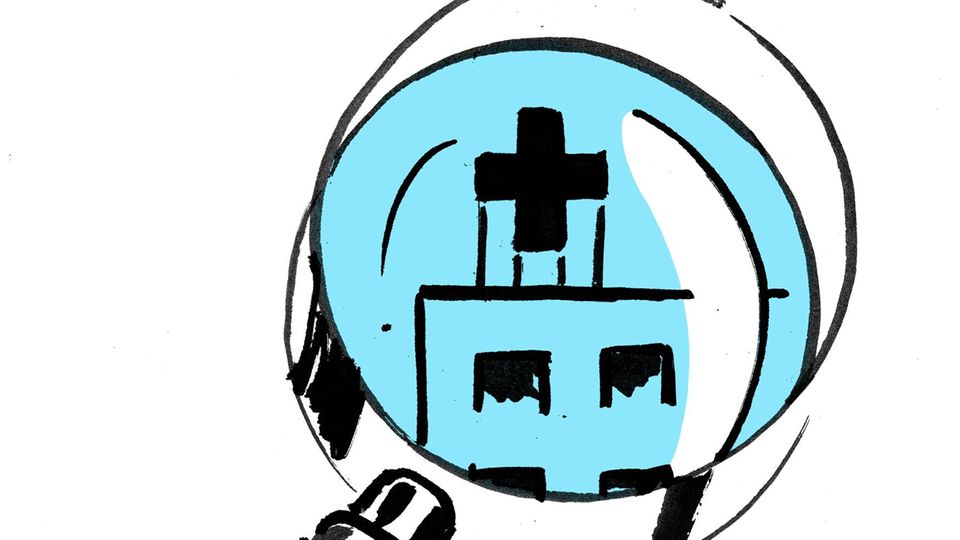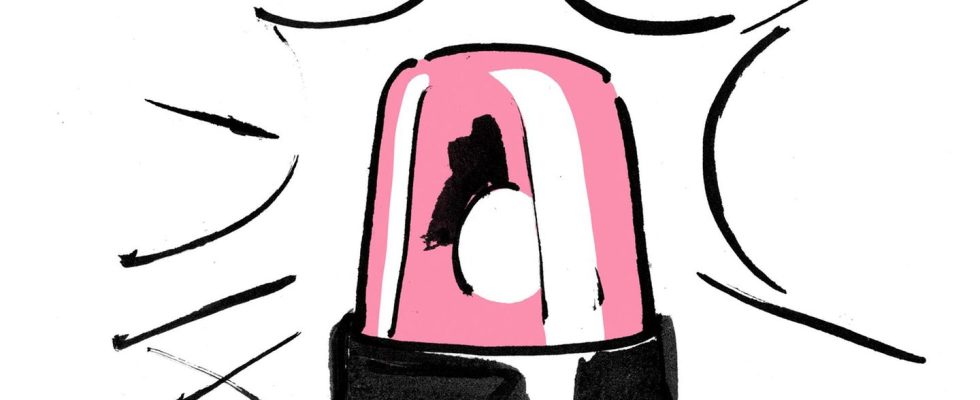burnout
These ten hidden warning signs will show you whether your stress level is too high
If you notice certain signs of stress, you should pay attention
© Studio Pong
Exhaustion is preceded by warning signals – in work, relationships and leisure time. Here’s how to recognize them and prevent burnout.
Burnout doesn’t happen overnight. It announces itself over weeks or months. Many people only go to the doctor when severe sleep disorders, unbearable pain or a total collapse force them to do so. These ten hidden warning signs will show you whether the stress level is too high and burnout is imminent.
How mental exhaustion sets in
- Life is shrinking: you constantly feel drained and tired, you no longer feel like meeting friends or doing sport, even though you know it would be good for you. The beautiful things disappear from life, and with them the joy and energy disappear.
- Creativity dries up: new ideas and inspiration need a clear mind. Rumination locks up your thoughts and lets them revolve around the same problems over and over again. When creative minds run out of ideas, it can be a sign of too much stress in everyday life.
- 1 p.m., nothing eaten yet: If you regularly cannot eat or drink, you are working in emergency mode. The release of stress hormones makes it possible to focus entirely on a task and to suppress impulses such as hunger and thirst. However, a healthy stress curve flattens out over the course of the day.
- No time for breaks: Similar to eating and drinking, working non-stop is a warning sign. Body and mind need the alternation of tension and relaxation to stay healthy.
- If the weekend isn’t enough: If you feel like you only wind down on Sunday evening, you don’t have enough time to compensate for your energy deficit. The risk of burnout increases week by week.
- Forgetfulness increases: With constant stress, the brain is overloaded. You forget appointments, misplace things, make mistakes at work.
- Everything in the job seems equally important: A typical sign of mental overload is the inability to make decisions or set priorities. Everything seems to be equally important, the projects are piling up, nothing is moving forward.
- The relationship deteriorates: you have no energy to listen to the other person, are easily irritable and quickly annoyed. This is not the partner’s fault, but rather the permanently increased stress level.
- Everything is boring: it’s difficult to get involved in a book, a film, a concert if you’re constantly tense. You no longer have the patience or interest in new things.
- Sleepless nights: During the day the production of stress hormones runs at full speed, but in the evening the cortisol level does not fall sufficiently. The result is often sleep disorders and nighttime rumination.
Helping you to help yourself – learning to say no
Too much work, too few people – that leads to overwork and stress. Everyone is probably familiar with the request from overworked colleagues or bosses whether they could “just” do this or that. But “just for once” easily turns into a permanent additional task. Many people find it difficult to say no. “You don’t want to appear selfish,” says Mechthild Echterhoff, work and organizational psychologist at AOK. It’s also not easy to defend yourself against tactics such as flattery (“You’re so good at this”) and pressure (“If we don’t do this, the customer is gone”). According to the psychologist, three things could make it easier to say no:
- Take time to think about it. If you have a big favor, sleep on it for a night. For smaller requests, think for at least five or ten minutes whether you really want that.
- Show attitude. Express your no with your body. Head up, chest out, fold your arms, look the other person in the eyes. “If I make myself small and whisper no under my breath, I actually provoke the other person to continue to insist,” says Echterhoff.
- Make clear statements: The wording should make it clear that contradiction is pointless. To a flatterer you might say, “I’m sorry, but I can’t do that.” When pressure is applied, you respond politely, but make the consequences clear: “If I take on this, the current project will remain on hold and be delayed.”
Apps and online self-help
Apps or online programs for the treatment of mild and moderate depression offer low-threshold help.
• One of the most established programs is Moodgym. Based on the concept of cognitive behavioral therapy, it was developed by scientists at the Australian National University and adapted for the German market with the help of the University of Leipzig and the AOK. You get started with a self-test. The aim of therapy is to recognize your own negative thought patterns and gradually transform them into positive thoughts and feelings. The program does not replace medical treatment, but just as regular visits to a fitness center strengthen the body, training in Moodgym strengthen the soul.
• The Federal Institute for Drugs and Medical Devices (BfArM) has approved several apps for the treatment of depression and anxiety disorders in recent years. The costs for so-called DiGAs (digital health applications) are reimbursed by health insurance companies. An overview can be found at BfArM.

If the crisis is very acute, hospitalization is often the best solution
© Studio Pong
If nothing works anymore – tips for finding a clinic
Inpatient treatment of mental disorders comes into consideration when people are in a serious life crisis and can no longer cope with their everyday life in their usual environment. The waiting times for clinics with psychiatric and psychotherapeutic departments and rehabilitation clinics can be several weeks or months.
• The portal Quality Clinics.de Together with the University Hospital Hamburg-Eppendorf, we surveyed more than 3,500 patients about their personal rehabilitation successes and thus evaluated clinics.
• Also the German depression help has compiled contact details for several hundred clinics.
• In the Psychosomatics clinic finder You can search according to your own criteria to find a suitable clinic.
• If you are on the waiting list but are in an acute crisis, you should contact the treating doctor or psychotherapist, the nearest psychiatric clinic or the emergency doctor on 112. Telephone counseling can be reached around the clock and free of charge at : 0800/111 01 11 or 0800/111 02 22.
• The nationwide depression information telephone also directs those affected and their relatives to contact points: Tel. 0800/334 45 33. Office hours: Mon., Tues., Thurs.: 1 p.m. – 5 p.m., Wed., Fri.: 8.30 a.m. – 12.30 p.m Clock
• Young people up to 25 years of age can receive individual crisis advice via WhatsApp and SMS www.krisenchat.de turn around. For under 19 year olds www.jugendnotmail.de advice via email and individual chat. Both services are free.




